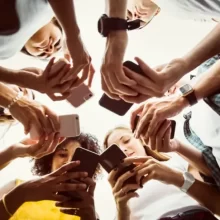Paris Jackson Explains Why She Identifies as a Black Woman
The post Paris Jackson Explains Why She Identifies as a Black Woman appeared first on Healthy Holistic Living.
In a world where identity and heritage intersect in complex and often unexpected ways, Paris Jackson’s candid revelation about her racial identity shines a light on the nuanced journey of self-discovery. The daughter of the late Michael Jackson, an indelible icon whose own racial identity was a subject of public fascination, Paris steps into her narrative with a bold declaration: she identifies as a black woman. This simple yet profound statement invites us into a broader conversation about race, identity, and the legacy of family heritage.
In an intimate interview, Paris Jackson unveils the layers of her identity, challenging the visual perceptions and societal expectations that often dictate how we navigate our world. Her story is not just about the assertion of her blackness but about the intricate dance between how we see ourselves and how others see us. It’s a testament to the power of heritage, the bonds of family, and the enduring quest for authenticity in a world that seeks to categorize and define.
This article delves into Paris Jackson’s journey, the public’s reaction, and the broader implications for individuals who, like Paris, navigate the complexities of biracial identity in a society still grappling with the binaries of race. Through her eyes, we explore the challenges, the criticisms, and the affirmations that come with embracing one’s full self in the public eye. Join us as we unpack the layers of Paris Jackson’s identity, the conversations it sparks, and the lessons we can learn about race, privilege, and the ongoing journey toward understanding and acceptance.
We’ll look closer at Paris’s reflections on her heritage, the mixed reactions from the public sphere, and the unique challenges white-presenting biracial individuals face. We’ll also offer comprehensive insights into the importance of acknowledging privilege and how we can all contribute to a more inclusive and understanding society. Through Paris Jackson’s story, we find a mirror reflecting the broader, ongoing dialogue about identity, race, and belonging in today’s world.
Paris Jackson’s Racial Identity
In a revealing discourse on self-identification, Paris Jackson, amidst the tapestry of her life, chooses to stand firmly within her truth as a black woman. This declaration is not made lightly, nor without its complexities, given her predominantly white appearance and the global recognition of her father, Michael Jackson. Paris’s stance on her racial identity is a poignant reminder of the deeply personal journey of self-recognition that transcends external appearances.
The foundation of Paris’s identity is significantly influenced by her father, Michael Jackson, whose own racial identity evolved in the public eye. Despite the changing hues of his skin due to vitiligo, Michael Jackson remained a figure deeply rooted in his African-American heritage. It was this heritage he sought to instill in Paris and her siblings, emphasizing pride in their black roots. Paris recounts moments of her father affirming their identity, a gesture that left a lasting impression on her understanding of herself. “He would look me in the eyes and he’d point his finger at me and he’d be like, ‘You’re black. Be proud of your roots,’” she recalled. This affirmation from her father serves as a cornerstone of Paris’s racial identity, reinforcing the notion that identity is as much about the stories we inherit as it is about the color of our skin.
This understanding is further complicated by the swirling rumors and skepticism surrounding Paris’s paternity. Allegations questioning whether Michael Jackson is her biological father have persisted, yet remain unproven. Paris navigates these waters with the assurance of her father’s honesty and the knowledge of her heritage. Her identification as black, despite her outward appearance and these controversies, underscores a profound statement on the nature of racial identity—external characteristics do not solely dictate it but is an amalgamation of personal belief, family history, and the legacy one chooses to embrace.
Paris’s journey sheds light on the nuanced realities of biracial individuals who may not fit neatly into societal expectations of racial identity. It challenges the binary perceptions of race, prompting a deeper examination of how identity is formed, claimed, and perceived. Through Paris Jackson, we are invited to consider the layers of identity that go beyond the visible, into the realms of heritage, family, and the personal truths that define us.
The Influence of Family and Heritage
The tapestry of Paris Jackson’s identity is richly woven with the threads of family heritage and personal conviction. Her father, Michael Jackson, played a pivotal role not just in her life but in shaping her understanding and acceptance of her racial identity. This influence underscores the profound impact family narratives and heritage have on our personal identity journey.
Michael Jackson’s insistence on his children recognizing and being proud of their African-American roots is a testament to the enduring strength of familial bonds in the construction of self-identity. Paris’s recount of her father’s reminders about their heritage is not merely a repetition of words but a transfer of legacy. It’s a legacy that, despite the external world’s skepticism and the complexities surrounding her family, has anchored Paris in a sense of self that is both proud and unwavering.
Paris’s story highlights several key aspects of how family and heritage contribute to the construction of identity:
Legacy of Heritage: The Jackson family’s history is deeply intertwined with the broader African-American experience, from the soulful melodies of the Jackson 5 to Michael Jackson’s transcendence as a global music icon. This legacy offers a rich backdrop against which Paris navigates her identity, reminding us that heritage is an indelible part of who we are.
Parental Influence: The role of parents in guiding their children’s understanding of their racial and cultural heritage is crucial. Michael Jackson’s explicit affirmations to Paris about their black heritage serve as powerful moments of identity formation, demonstrating how parental guidance can shape our perceptions of ourselves.
Navigating Mixed Heritage: Paris’s story also sheds light on the experiences of those with mixed heritage, for whom identity can often feel like a bridge between worlds. Her father’s teachings encouraged her to embrace all parts of her identity, offering a blueprint for others navigating similar paths.
Challenging Societal Perceptions: The Jackson family’s public life, marked by scrutiny and speculation, provides a backdrop against which Paris’s personal identity journey unfolds. The embrace of her black identity, despite external appearances and public doubt, challenges societal norms around race and identity, advocating for a more nuanced understanding of racial identity that transcends physical characteristics.
The narrative of Paris Jackson’s racial identity is emblematic of a larger conversation about the roles of family and heritage in shaping who we are. It reminds us that identity is multifaceted, shaped by a confluence of personal convictions, family teachings, and the legacies we inherit. As we move forward, we delve into the public’s reaction to Paris’s self-identification, exploring the broader implications of her story for discussions on race and identity in society.
Public Reaction and Internet Discourse
The revelation of Paris Jackson’s identification as a black woman catalyzed a spectrum of reactions across the digital landscape. This discourse, unfolding in the vast expanse of the internet, mirrors the complexities and diversities of opinion that characterize contemporary conversations on race and identity.
At the heart of the public’s response is a blend of support, skepticism, and critique, reflecting the multifaceted nature of racial identity in a society that often seeks clarity in binaries. Supporters laud Paris for her courage in embracing her black heritage, highlighting the importance of self-identification and acknowledging one’s roots. They argue that if Michael Jackson, with his African-American lineage, is indeed her biological father, Paris’s claim to a biracial identity stands firm, irrespective of her physical appearance.
Conversely, skepticism abounds, primarily hinging on Paris’s white-presenting appearance. Critics argue that her identification as black overlooks the lived experiences and challenges faced by those who are visibly black or biracial but present more closely to African American phenotypes. This skepticism is echoed in social media commentaries and think pieces, raising questions about authenticity and the implications of racial identification based on heritage rather than lived experience.
Notably, the discourse extends beyond individual opinions to touch on broader societal issues, such as colorism and the visibility of biracial identities. Tweets and comments reference other public figures of mixed heritage who navigate similar spaces of racial identity, suggesting a pattern of questioning and validation that biracial individuals often face. Media personality Wendy Williams’s commentary encapsulates a common sentiment, pointing out the difference between self-identification and societal perception, especially in contexts where racial identity can determine one’s experiences of privilege or discrimination.
This public reaction highlights a critical aspect of contemporary discussions on race: the distinction between how one identifies and how one is perceived by society. It underscores the challenges white-presenting biracial individuals face in claiming their identity amidst societal expectations and the reality of racial dynamics. The discourse also points to a broader conversation about the role of appearance in shaping experiences of race and identity, suggesting that the journey of racial identification is both deeply personal and inextricably linked to societal perceptions.
The internet’s response to Paris Jackson’s identification opens up essential dialogues about identity, heritage, and the complexities of navigating racial categories in a world that often demands simplicity. As we continue to explore these themes, the conversation around Paris Jackson’s racial identity serves as a microcosm of larger discussions on race, belonging, and the nuanced realities of living between worlds.
Challenges of White-Presenting Biracial Individuals
The experiences of white-presenting biracial individuals, such as Paris Jackson, illuminate the intricate dynamics of racial identity in a society that often categorizes individuals based on physical appearance. Let’s explores the unique challenges faced by those who navigate the world with a biracial identity that is not immediately visible to others.
Navigating Dual Identities
One of the most profound challenges white-presenting biracial people encounter is the feeling of navigating between two worlds. They may not fully identify with either of their racial backgrounds due to societal perceptions and expectations. This can lead to feelings of isolation or confusion about where they fit within the racial spectrum. Paris Jackson’s story highlights this struggle, as she embraces her black heritage while contending with public skepticism due to her appearance.
Colorism and Privilege
Colorism plays a significant role in the experiences of biracial individuals, particularly those who present as white. While they may face certain challenges due to their mixed heritage, they also benefit from white privilege in ways that their darker-skinned counterparts do not. This privilege can manifest in social, economic, and educational opportunities, underscoring the complex interplay between race and privilege. Acknowledging this privilege is crucial, as it shapes their interactions with the world and the broader discourse on racial identity.
The Impact of Societal Perceptions
Societal perceptions significantly impact the lives of white-presenting biracial individuals. They often face skepticism about their identity and may feel pressured to prove their heritage. This external questioning can undermine their sense of self and complicate their journey toward self-acceptance. Moreover, the reaction to Paris Jackson’s self-identification underscores the challenges of being perceived based on appearance rather than personal identity and heritage.
Identity and Systemic Racism
While white-presenting biracial individuals navigate the complexities of identity, it is essential to recognize that they do not experience systemic racism in the same way as those who are visibly black. This difference highlights the need for a nuanced understanding of how racism affects individuals differently based on their racial presentation. It also points to the importance of solidarity and the role of white-presenting individuals in advocating for racial justice.
Finding Community and Support
Building a sense of community and finding support is vital for white-presenting biracial individuals exploring their identities. Connecting with others who share similar experiences can provide a space for understanding, validation, and shared experiences. Through these communities, individuals can navigate the complexities of their identities and advocate for a more inclusive understanding of race.
The challenges faced by white-presenting biracial individuals highlight the need for a more inclusive and nuanced conversation about race and identity. It emphasizes the importance of understanding the intersectionality of race, societal perceptions’ impact, and privilege’s role in shaping individual experiences. As we move forward, acknowledging these complexities can pave the way for greater empathy and understanding in discussions about racial identity.
Acknowledging Privilege and Systemic Racism
In the quest for a deeper understanding of racial identity and the dynamics of privilege, it becomes imperative for white and white-presenting people to engage in self-education and acknowledgment of their societal advantages. Here, we offer a comprehensive list of tips to foster this understanding and encourage a proactive stance towards systemic change.
Understanding and Acknowledging Privilege
Understanding and acknowledging privilege is a crucial step in navigating the complexities of racial identity and systemic inequality. The journey begins with a personal reflection on the ways in which racial identity influences one’s interactions with the world. For many, particularly those who are white or white-presenting, this might mean recognizing the privileges afforded to them that are not extended to people of color. Such privileges can manifest in various aspects of daily life, from the absence of racial profiling to a more favorable representation in media and a general presumption of innocence in social situations.
In addition to self-reflection, it is essential to actively engage with and listen to the voices of those who live the realities of racial discrimination. This involves seeking out the stories, perspectives, and insights of people of color through various mediums, be it books, documentaries, or social media platforms where activists and thought leaders share their experiences. Engaging with these diverse narratives can provide a broader understanding of the systemic issues at play and foster empathy and solidarity.
However, it’s important to recognize the inherent limitations in understanding the full scope of experiences faced by people of color, especially for those coming from a place of privilege. No amount of education or exposure can fully bridge the gap in lived experiences. Acknowledging this limitation is key, underscoring the importance of adopting a posture of listening rather than speaking in conversations about race. It’s about understanding the value of creating space for marginalized voices and recognizing the power dynamics that often shape dialogues around race and identity. Through these actions, individuals can begin to contribute to a more equitable and understanding society, rooted in mutual respect and a commitment to addressing systemic inequalities.
Educating Oneself About the History and Impact of Racism
Dedicating time to educate oneself about the history of racism, colonialism, and slavery is an essential step in understanding the deeply entrenched roots of systemic racism and its pervasive impact on society today. This education goes beyond mere awareness; it involves a deep dive into the historical contexts that have shaped racial dynamics and inequalities over centuries. By exploring these subjects, individuals can gain a clearer understanding of how historical injustices continue to influence present-day societal structures, attitudes, and policies. This knowledge is foundational in recognizing the complex ways in which racism is woven into the fabric of our daily lives and institutions.
Supporting educational initiatives that focus on teaching the history of racial injustice plays a critical role in fostering a more informed and conscious society. Advocating for curriculum changes in schools ensures that future generations are better equipped with the knowledge and understanding necessary to challenge and dismantle systemic racism. Additionally, participating in community education programs can provide spaces for dialogue, learning, and collective action. These initiatives educate and empower communities to address racial injustices, creating a ripple effect that can lead to broader societal change. Engaging in these efforts signifies a commitment to building an equitable society where the history and experiences of all its members are acknowledged, respected, and learned from.
Engaging in Conversations About Race and Privilege
Initiating conversations about race and privilege within one’s own social circles is a vital step towards fostering greater awareness and understanding of systemic inequalities. By bringing these topics into everyday discussions, individuals can challenge the silence and discomfort that often surround issues of race. This proactive approach encourages reflection and learning, allowing people to examine their own positions and privileges within societal structures. Such conversations can serve as powerful catalysts for change, prompting individuals to consider their roles in perpetuating or challenging systemic racism.
Equally important is the openness to correction and guidance during these discussions, especially from those who have directly experienced racial discrimination. Engaging in dialogues about race requires humility and a genuine willingness to learn from the lived experiences of others. This means acknowledging that, despite best intentions, there may be gaps in one’s understanding or unintentional biases that need addressing. Being receptive to correction not only enriches personal understanding but also demonstrates respect for the perspectives and truths of people of color. It is through this process of listening, learning, and being open to change that individuals can contribute to building a more inclusive and equitable society.
Supporting People of Color and Anti-Racism Efforts
Amplifying the voices and work of people of color is crucial for those committed to racial equality and justice. Utilizing one’s platforms, whether on social media or in personal conversations, to highlight and share the experiences, insights, and creative outputs of people of color, plays a significant role in shifting narratives and broadening perspectives. This amplification ensures that stories and contributions from diverse communities are seen and heard, challenging the predominance of a single narrative and fostering a richer, more inclusive dialogue around race and culture.
Supporting black businesses and creators is another tangible way to contribute to the economic empowerment of communities that have historically faced systemic barriers. By consciously choosing where to spend money, individuals can directly impact the success and visibility of businesses and creatives of color, helping to close the racial economic gap. This support not only acknowledges the talent and entrepreneurship within these communities but also invests in their continued growth and sustainability.
Participation in advocacy and activism is essential for advancing racial equality and justice. Engaging in these efforts can take many forms, from attending protests and rallies to advocating for policy changes at local, national, and international levels. These actions demonstrate a commitment to challenging and dismantling systemic racism, supporting movements that seek to create a more equitable and just society. By standing in solidarity with those fighting for change, individuals can contribute to the collective effort to address and rectify the injustices that people of color face daily.
Reflecting on Personal Biases and Taking Action to Address Them
Conducting personal reflections on one’s biases and their manifestations in daily actions and decisions is an essential practice for anyone committed to personal growth and the mitigation of unconscious biases. This process of introspection allows individuals to recognize and confront the prejudices and stereotypes that have been ingrained, often subconsciously, through societal conditioning. By regularly examining one’s thoughts, behaviors, and the decisions one makes, individuals can begin to identify patterns that may contribute to systemic racism. This self-awareness is the first step towards change, enabling individuals to actively work on adjusting their behaviors and attitudes, thereby contributing to a more equitable society.
Furthermore, seeking out resources for unlearning racism is a proactive measure that can significantly enhance one’s understanding of and commitment to anti-racism. Workshops, books, and online courses focusing on anti-racism education offer valuable insights into the history and mechanisms of racism, as well as strategies for dismantling it. These resources provide the tools and knowledge necessary for individuals to challenge their own prejudices and to actively engage in the fight against racial injustice. Engaging with these materials not only educates but also empowers individuals to make informed, conscious efforts to counteract racism in their communities and beyond. By investing time and effort into unlearning racism, individuals take a crucial step toward fostering a more inclusive, just, and understanding world.
By engaging with these tips, white and white-presenting individuals can play a significant role in the fight against systemic racism. It’s about moving beyond acknowledgment to action, using privilege to advocate for change and support those directly affected by racial injustice. Paris Jackson’s candid discussion of her identity and its complexities serves as a reminder of the importance of these conversations and the ongoing work needed to foster a more equitable society.
Paris Jackson’s Influence on Racial Identity Conversations
Paris Jackson’s openness about her racial identity and its complexities has sparked important conversations about race, identity, and belonging. Her story is a window into the nuanced journey of understanding one’s place in a world that often seeks to categorize and define based on appearance.
Paris Jackson challenges conventional narratives about racial identity by embracing her black heritage despite her white-presenting appearance. This act of self-identification serves as a powerful statement against the rigid racial binaries that dominate societal discourse. By sharing her experience, Paris encourages a more flexible understanding of identity, one that allows for the complexities and nuances of individual experiences.
Paris’s story has broadened the conversation on racial identity to include the perspectives and challenges of biracial and multiracial individuals. It highlights the importance of acknowledging and respecting the diverse ways people understand and navigate their racial identities. This inclusivity enriches the dialogue around race, encouraging a more comprehensive exploration of identity beyond traditional categories.
As a public figure, Paris Jackson’s discussion of her identity has a magnified impact. Public figures have the platform and influence to shape societal perceptions and conversations. Paris’s candidness about her racial identity journey encourages other public figures to share their own experiences, fostering a more open and diverse dialogue about race and identity. It underscores the importance of visibility and representation in media and public discourse, highlighting how personal stories can resonate and inspire broader societal reflections.
Paris Jackson’s journey is a testament to the power of self-acceptance and the search for personal truth in the face of societal expectations. Her story resonates with many struggling with racial identity, offering inspiration and validation. It serves as a reminder that identity is deeply personal, and self-identification is a fundamental right. By embracing her identity, Paris encourages others to do the same, fostering a culture of understanding and acceptance.
The conversations sparked by Paris Jackson’s identification as a black woman contribute to the ongoing dialogue about race, identity, and systemic change. They encourage reevaluating how racial identities are perceived and valued in society. Through these discussions, we can work towards dismantling the stereotypes and prejudices that underpin racism, moving closer to a world where every individual’s identity is respected and celebrated.
Paris Jackson’s influence on conversations about racial identity underscores the importance of sharing personal stories. They illuminate the diverse realities of living between worlds and challenge us to think more critically about our perceptions and attitudes toward race and identity. Her story is a call to action, urging us to engage in the necessary work of understanding, acceptance, and advocacy for a more inclusive and just society.
Embracing Complexity: Toward a More Inclusive Understanding of Identity
In navigating the intricacies of Paris Jackson’s journey of racial self-identification, we’ve traversed a landscape rich with discussions on heritage, public perception, and the personal realities of biracial identity. Paris’s candidness in embracing her black heritage, despite facing skepticism and critique, serves as a poignant reminder of the complexity of racial identity in a world that often seeks simplicity. Her story is not just her own but echoes the experiences of many who find themselves navigating the nuanced spaces between racial categories.
This exploration into Paris Jackson’s racial identity journey and the subsequent public discourse underscores a critical truth: identity is multifaceted and deeply personal. It is shaped by a confluence of factors — family, society, personal conviction — and is not always visible to the external eye. Paris’s openness in discussing her identity challenges us to consider the broader implications of our societal obsession with categorization and the need for a more inclusive understanding of race and identity.
Moreover, the conversation around Paris Jackson’s identification highlights the ongoing challenges faced by white-presenting biracial individuals and the complexities of navigating privilege, societal perception, and personal identity. It serves as a call to action for all of us, particularly those who hold societal privilege, to engage in self-reflection, educate ourselves on the realities of racism, and actively participate in the broader fight for racial justice and equality.
As we reflect on Paris Jackson’s contribution to the dialogue on racial identity, let us take forward the lessons learned about understanding, empathy, and the importance of listening to and validating diverse experiences. Her story, and those like hers, invite us to broaden our perspectives and engage in the continuous work of building a more inclusive and understanding society.
In embracing our identities, acknowledging our privileges, and advocating for systemic change, we move closer to a world where everyone has the freedom to be their authentic selves without fear of judgment or exclusion. Paris Jackson’s journey is a reminder of the power of self-identification and the importance of embracing our complex, multifaceted selves in the pursuit of a more just and equitable world.
Thank you for joining us on exploring identity, race, and the journey towards understanding and acceptance. Let’s continue the conversation, mindful of the diverse experiences that enrich our collective human tapestry.
The post Paris Jackson Explains Why She Identifies as a Black Woman appeared first on Healthy Holistic Living.












